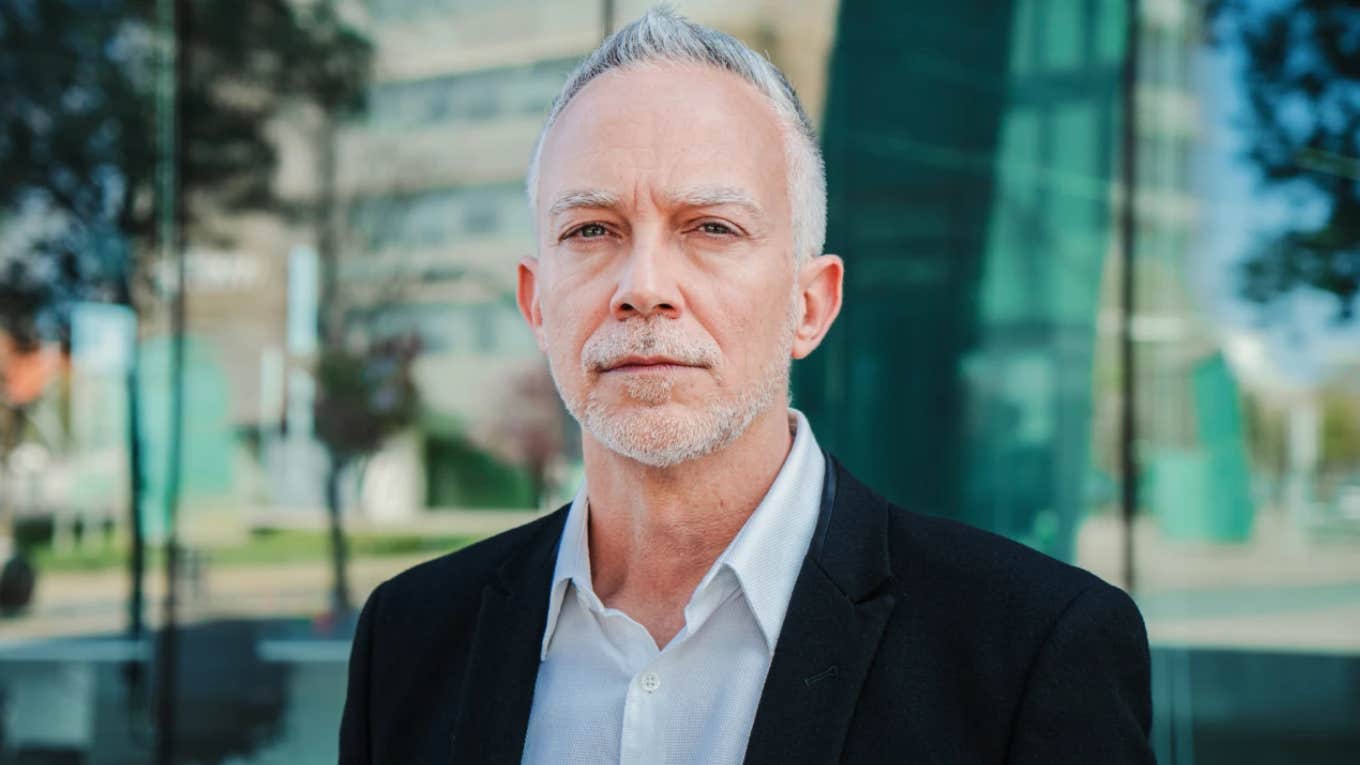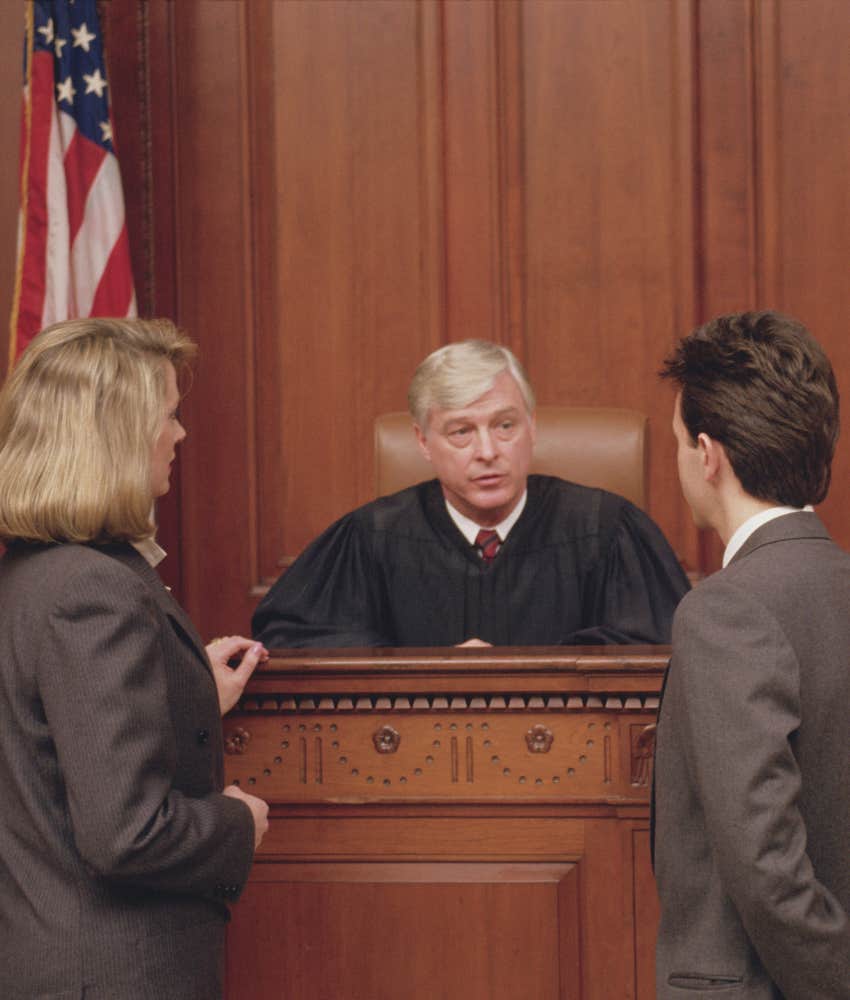Divorce Lawyer Breaks Down While Recounting The 'Saddest' Case He Won But Wishes He’d Lost
The justice system isn't always fair.
 Jose Calsina | Shutterstock
Jose Calsina | Shutterstock A popular media commentator and divorce attorney named James Sexton became emotionally overcome after detailing one of the most memorable and disappointing cases that he's ever worked on.
During an interview with entrepreneur Steven Bartlett, Sexton, who often speaks about divorce-related issues that he's seen both in and out of the courtroom, had a candid discussion about the problem of inequity that exists within the justice system and how it impacted him while working on a case.
A divorce lawyer broke down while explaining the 'saddest' case he won but wishes he'd lost.
"Was there ever a particular case that you think about that broke your heart?" Bartlett asked Sexton. Not even having to think about the question for long, Sexton recalled that it was, surprisingly, a case he'd won but wished that he hadn't. He represented a pimp who's currently incarcerated but, at the time, had been horrendously abusing a woman he had children with.
Sexton explained that the lawyer representing the abused woman was incredibly inexperienced, and the judge on the case wasn't empathetic and was, as Sexton described, "impatient." One of the key factors of evidence that was presented was a photo of the woman's face after his client had allegedly beaten her up quite violently.
"Getting a photograph into evidence is very easy," Sexton continued. "But it requires a very specific phrasing. What you'd say is, 'I'd like this to be marked for identification.' You mark the photo, and then you hand it to the witness, or you hand it to the court officer, who hands it to the witness."
Once the photo is handed to the witness, a lawyer can ask questions to the other party, including whether they recognize the image and whether the image is a fair and accurate depiction. Then, the photo can be processed as evidence. However, in this case, the woman's lawyer, due to her lack of experience, didn't know how to get the photograph into evidence.
The lawyer recalled that the judge was 'not in the mood' to be helpful to the opposing attorney.
"[The] opposing council said, 'I'd like this to be marked,' and then she said, 'Could you hand it to the witness?' and she said, 'What is it a photo of?'" Sexton said. "So, I did my job. I said, 'Objection. She's asking about the contents of a document, not as evidence, which is my job.'"
The opposing council's inability to find the correct wording frustrated Sexton, who recalled looking at the judge and hoping that she'd help because this woman was "poor" and was going to lose because her lawyer didn't understand specific terms and the woman couldn't afford to hire a lawyer who did.
Getting emotional, Sexton insisted that he and his client would end up winning due to this lack of knowledge, which didn't sit right with him at all.
 Comstock | Canva Pro
Comstock | Canva Pro
"The judge just let her down. She asked three or four more questions that were the wrong questions. Then she just said, 'I don't know. I don't know what to say.' She just sat back down, and the case got dismissed."
Unfortunately, inequity in the justice system is rampant and affects certain communities more than others. Despite the justice system being around to rightfully punish and compensate people who have been wronged, it doesn't seem fair in the slightest for the people who don't have the funds or means to advocate for themselves.
Many people are unable to afford a lawyer which stops them from seeking legal help.
According to the Justice Gap Report, low-income Americans did not receive any or enough legal help for 92% of their civil legal problems. Instead, they were forced to "go it alone" without representation in disputes where they often risked losing their jobs, their homes, or their children. And in other cases, they were forced to watch their abuser walk off scot-free because of the lack of legal representation.
Nearly half (46%) of those who did not seek legal help for one or more problems cited concerns about cost as a reason why. Additionally, more than one-half (53%) of low-income Americans doubted their ability to find a lawyer they could afford if they needed one.
It doesn't help that America's failed criminal legal policies almost always disproportionately harm Black and Hispanic individuals, families, and communities. Mass incarceration ends up being a driving force for America's racial gap as well.
Households with a currently or previously incarcerated family member have about 50 percent less wealth than households not affected by incarceration, according to the Center for American Progress.
Additionally, households with criminal legal system interactions face more obstacles to saving and end up deeper in debt.
For example, 21.5% of households with a currently or previously incarcerated family member had legal debt in 2019, compared with only 2.1% of households without an incarcerated family member.
It's disheartening that many communities have been set up to fail, and for a system that promotes fairness and justice, millions of people are not afforded the luxury of being able to receive that justice.
Nia Tipton is a staff writer with a bachelor’s degree in creative writing and journalism who covers news and lifestyle topics that focus on psychology, relationships, and the human experience.

